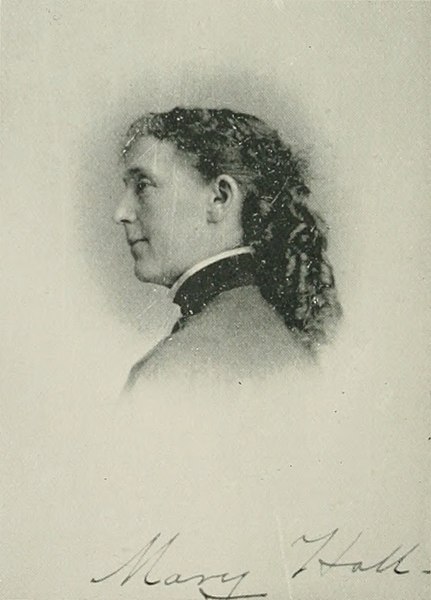|
Mary Lee Hall
[Source: WikiMediaCommons] "In July of 1877, just five years after the United States Supreme Court denied Myrd Bradwell the right to practice law in Illinois, the first Connecticut woman who was to gain admission to the Connecticut bar, Mary Hall, began her study of law at the law offices of her brother, Ezra Hall, and continued her studies after his death at the law office of John Hooker. Mary Hall felt the fear and dread that her application for admission to the Hartford County Bar might produce. Nonetheless, after completing the prescribed term of study and passing the necessary examination, she applied for admission. Her admission to the bar remained dependent upon an opinion which was to be rendered by the state's highest court as to whether a woman could legally be admitted under Connecticut law. Conn. Gen. Stat. Sec. 29 (Rev. 1875) read as follows:
The bar of Hartford County voted to recommend the admission of Mary Hall, subject to the court's decision. The chief obstacle was that, although the language of the statute was broad enough to include women, at the time it was passed its application to women had not even been considered. The argument was made that a resulting common-aw disability existed which could be removed only by a statute intending to have the effect of applying to men as well as women. Despite this argument, the court ruled favorably as to Mary Hall's application, stating:
Epaphroditus Peck stated that this was a liberal court de- cision in regard to women, as compared with decisions of other state courts: "I know of no other judicial decision admitting women to the legal profession on general reasoning, not supported by any statute passed with that intent." [Women in Connecticut Law, 49 Conn. B.J. 360, 360-361 (1975)] Mary
Hall Mary
Hall Bibliography Matthew G. Berger, Mary Hall: the Deciswion and the Lawyer, 79 Conn. B. J. 29 (2005) |
